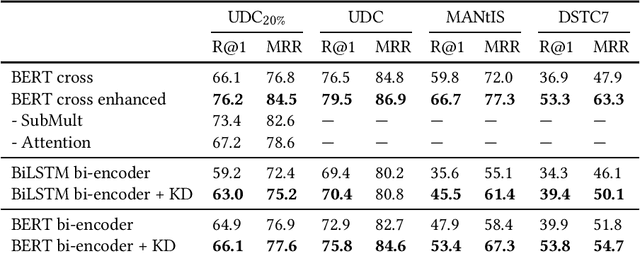Distilling Knowledge for Fast Retrieval-based Chat-bots
Paper and Code
Apr 23, 2020


Response retrieval is a subset of neural ranking in which a model selects a suitable response from a set of candidates given a conversation history. Retrieval-based chat-bots are typically employed in information seeking conversational systems such as customer support agents. In order to make pairwise comparisons between a conversation history and a candidate response, two approaches are common: cross-encoders performing full self-attention over the pair and bi-encoders encoding the pair separately. The former gives better prediction quality but is too slow for practical use. In this paper, we propose a new cross-encoder architecture and transfer knowledge from this model to a bi-encoder model using distillation. This effectively boosts bi-encoder performance at no cost during inference time. We perform a detailed analysis of this approach on three response retrieval datasets.
 Add to Chrome
Add to Chrome Add to Firefox
Add to Firefox Add to Edge
Add to Edge